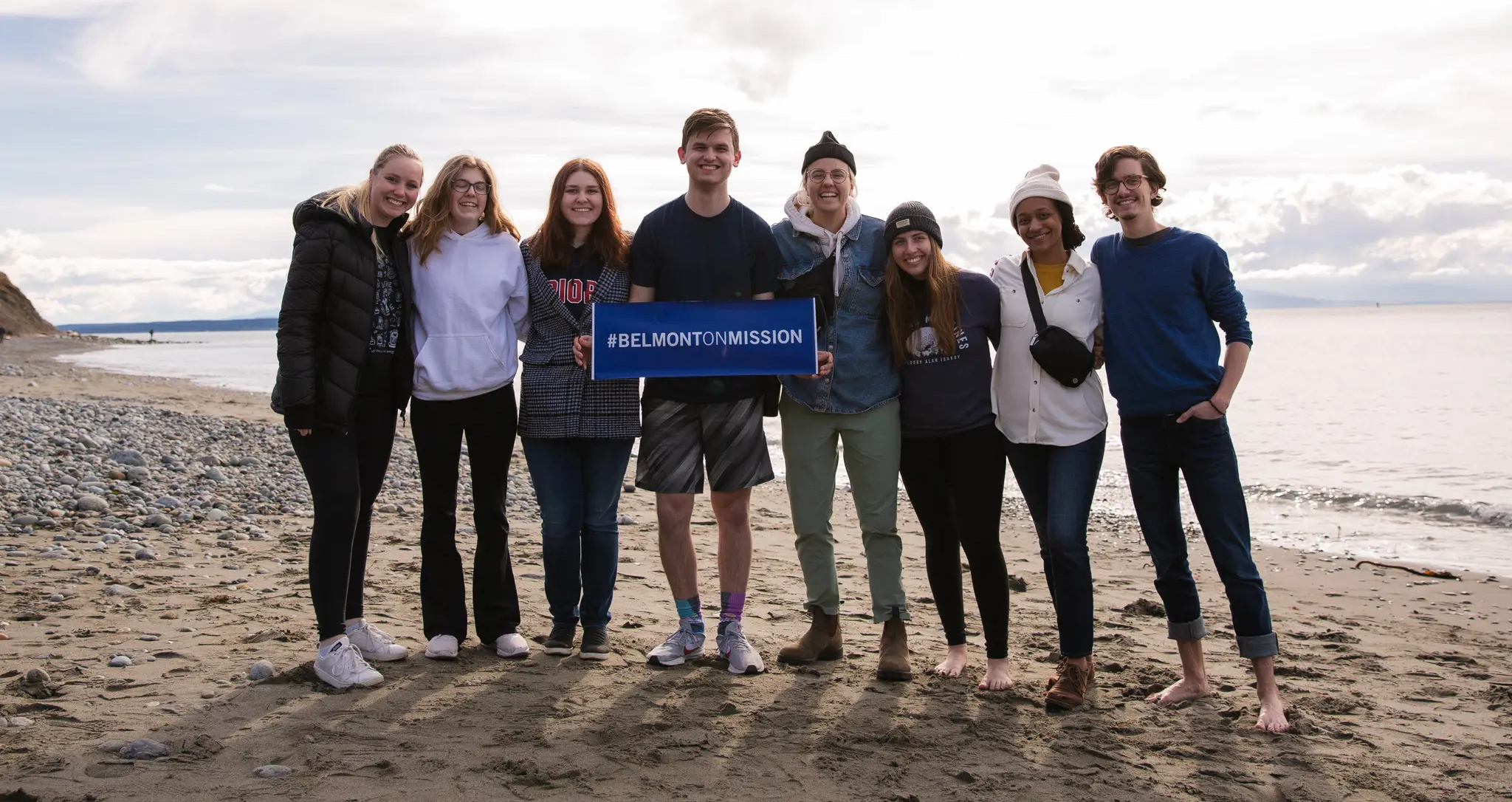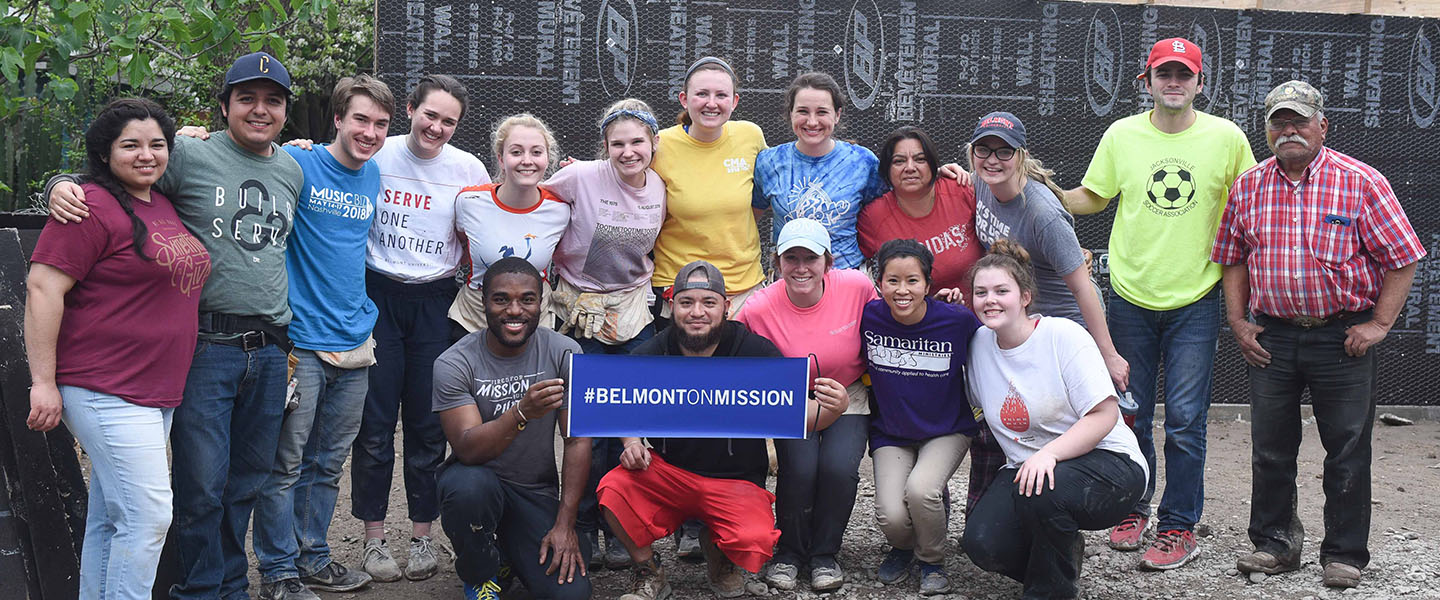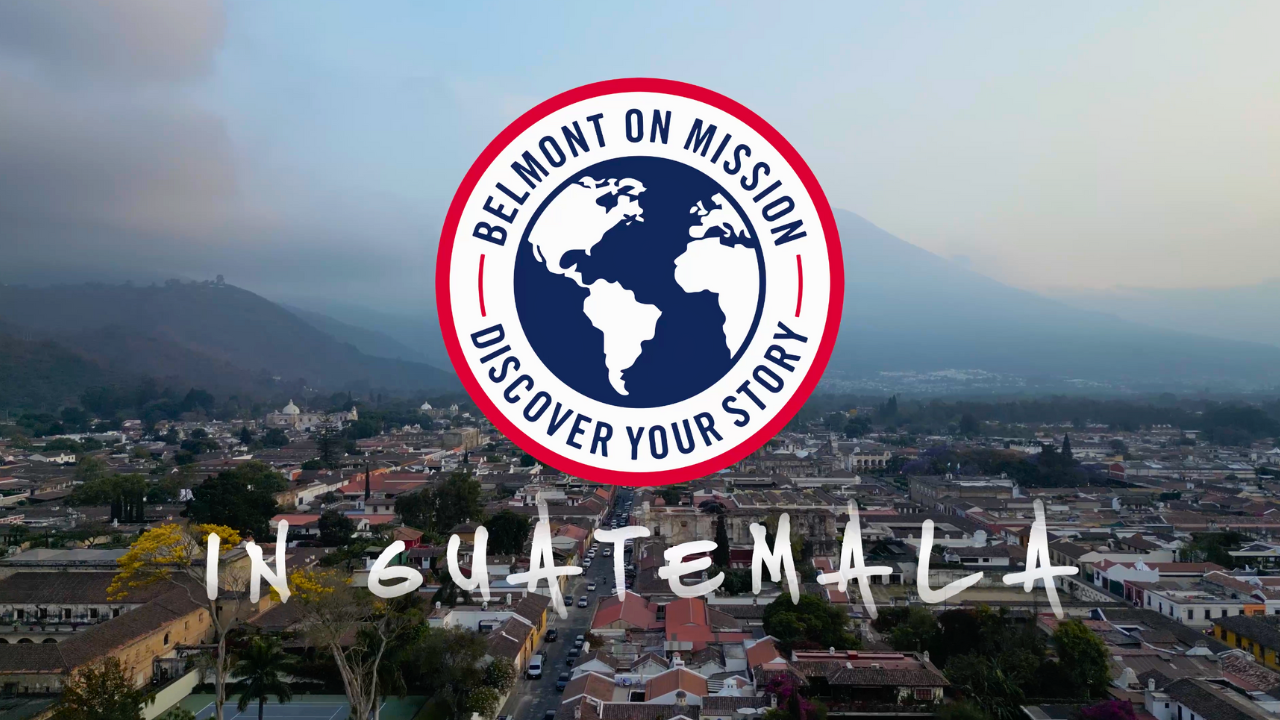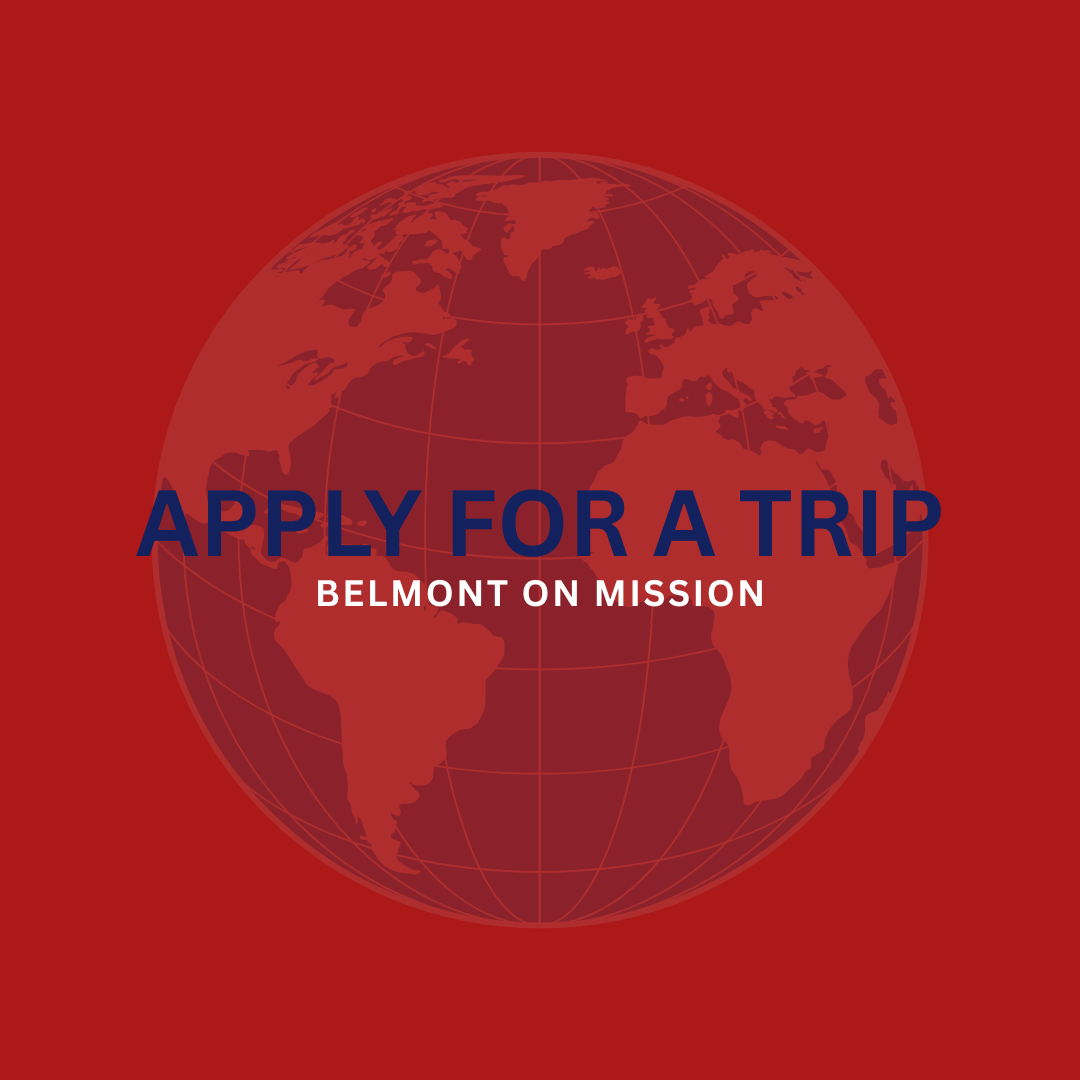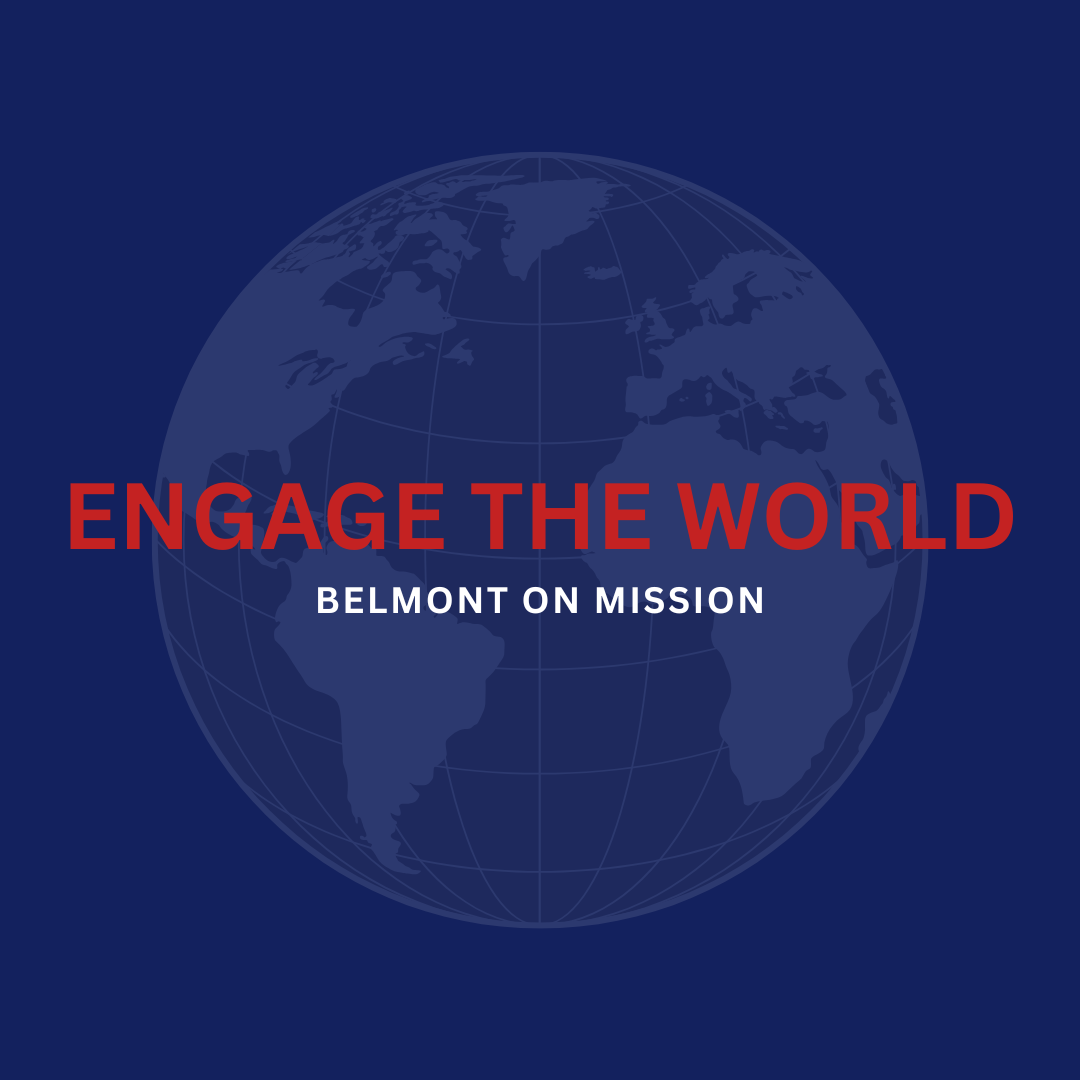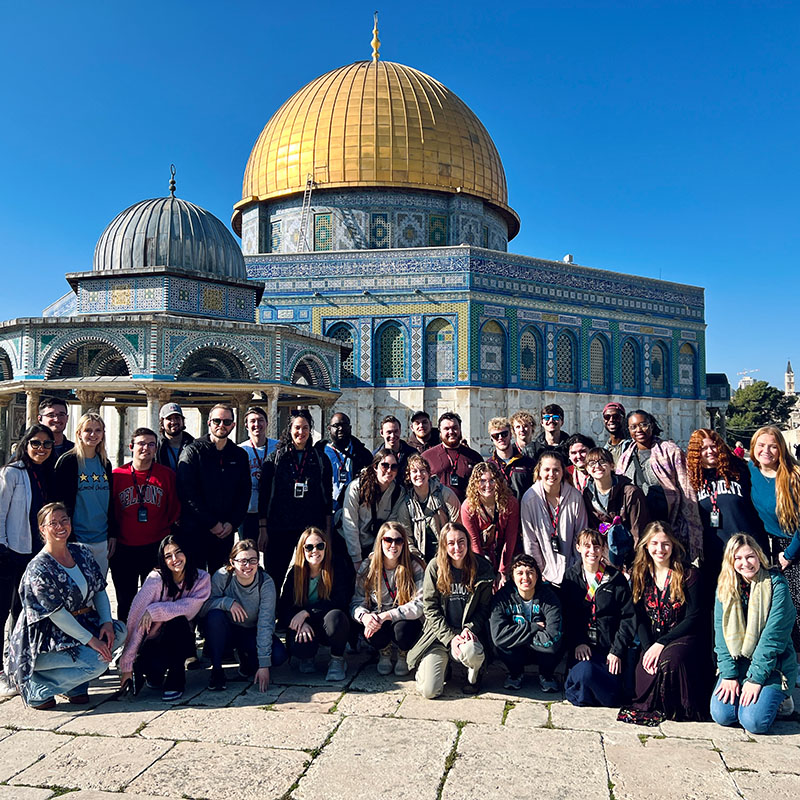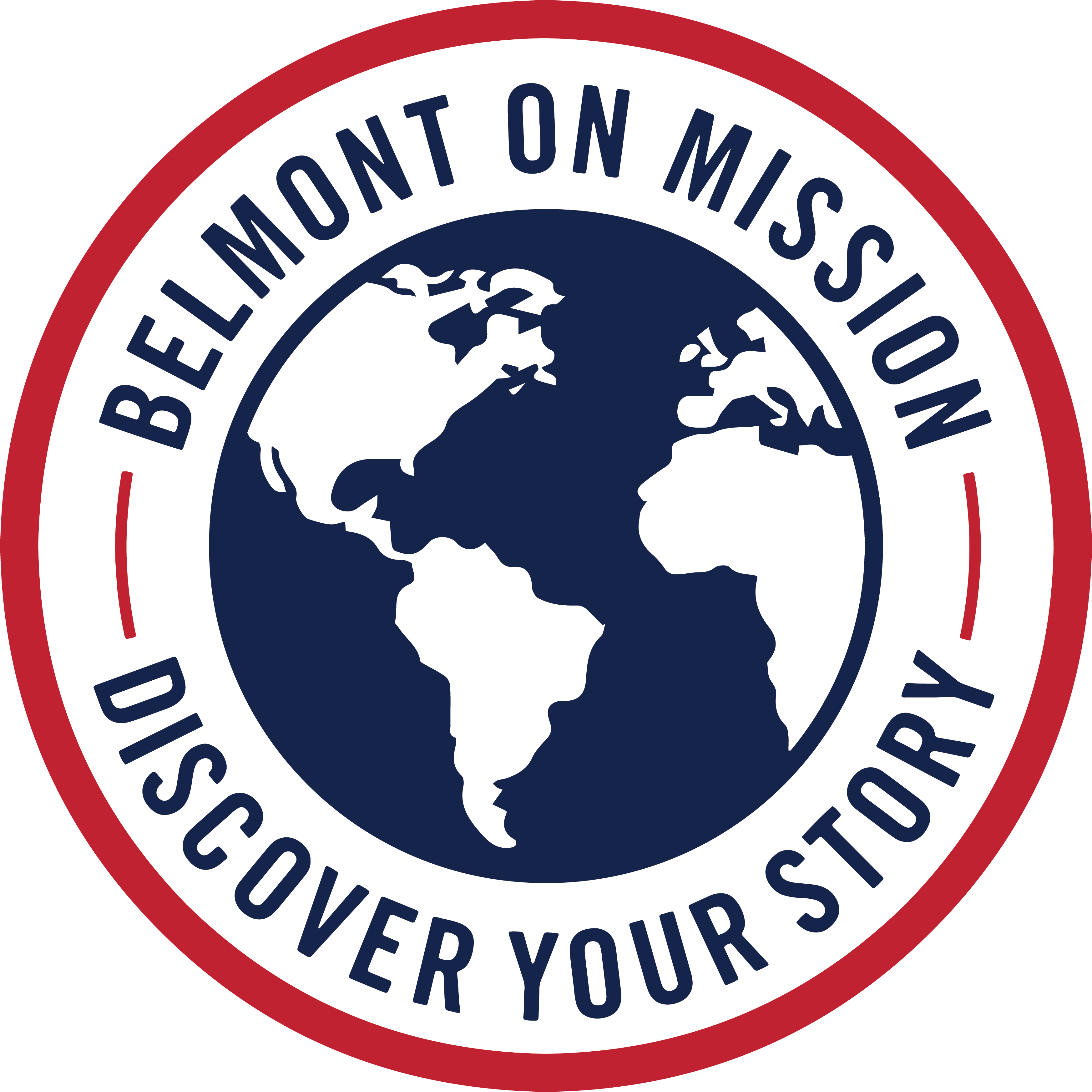 Find Your Place In God's Story
Find Your Place In God's Story
Every student comes to college trying to figure out what to do with their life. We get it – with so many options and pressure to get it "right,” it can be challenging to figure out where God is calling us and what we're most passionate about. At University Ministries, we believe that getting out of our comfort zones and seeing what God is up to in other parts of the world is a great place to start. A trip with Belmont on Mission invites you to...
Mission, at its most basic core, is about continual participation in God’s mission throughout one’s life. We believe that God is at work everywhere to renew and redeem all of creation – and God invites us to do the same. In light of this invitation, Belmont on Mission seeks the following vision, values, and principles by which to participate in God’s redemptive activity in the world.
Vision Statement
Belmont on Mission exists to inspire and equip students for faithful participation in God’s mission in the world. Toward that end, our philosophy of short-term missions is twofold: 1) to create high-impact missional opportunities that are transformative and constructive for students, and 2) to create long-term, sustainable impact on the lives of people and communities being visited through responsible strategic partnerships. In order to accomplish that vision, we offer a variety of opportunities through short-term missions trips (domestic and international) as well as local service initiatives.
Values
These values inform the work that we do and serve as target characteristics we hope students exhibit throughout their experience.*
- Prudence – Don’t just do it. Enthusiasm and willingness to do good are not sufficient for action. Engaging with others requires planning, assessment, and evaluation.
- Mutuality – Do with, not for. Mutuality means being relational rather than transactional in our approach to mission work, where we are both giver and receiver. We will seek to uphold the agency and dignity of those with whom we partner in our work, and seek to limit one-way giving to crisis situations.
- Humility – We all have something to learn. When engaging in partnerships, we must be transformed ourselves through humble confession about our impulses to be the hero. True cultural competence is necessary for reciprocal learning and transformation. We will recognize God’s activity already present in the places and people we visit.
- Patience – Build capacity, not dependency. We shouldn’t seek to engage in activities that a community is able to do for itself, nor participate in unexamined charitable giving. This process of partnering with a host community often takes longer than expected and requires patience.
- Innovation – Move beyond simple answers. We seek to push the limits of innovation as we engage our minds, skills, and expertise alongside our compassion as we seek more comprehensive solutions.
- Integration – Engage your whole life. We seek to provide transformational and constructive experiences for students, but not just for the time spent on the field. We will help students build on their experiences as they integrate back into their lives as university students.
*These values are based on the Seeking Shalom curriculum created by the Lupton Center, the Guiding Principles for International Health Activities by CHAUSA, and insights from Belmont on Mission leaders.
Guiding Principles
These guiding principles inform the methods by which we develop and execute trips all around the world.
- Develop missional imagination – We will seek creative ways to help students develop a more robust imagination for what mission looks like in their lives in ways that are congruent with their passions, skills, and careers. We will do this by emphasizing discipline-specific mission opportunities that are multi-dimensional and holistic.
- use strategic partners – Instead of developing direct relationships with global partners, we seek to find strategic faith-based partners and sending agencies that are embedded in long-term work in the community so that we can responsibly engage with communities.
- Wise and sustainable growth – With a commitment not to do harm, we will prioritize the wise and sustainable growth of missions programming at Belmont by maintaining a commitment to thorough administration, qualified leadership, comprehensive training, and appropriate follow-through.
Learning Outcomes
We want those who participate in Belmont on Mission….
- To learn about and appreciate other cultures different than their own.
- To develop empathetic concern and comfort with those different than them.
- To better understand God’s mission and how they can participate in that mission both locally and globally.
- To understand our responsibility to love and empower our global neighbors.
- To deepen their critical awareness of the influence of historic and contemporary power and wealth inequalities on peoples and regions.
- To learn and practice skills for self-awareness and interpersonal communications during a transformative experience.
- To reflect and integrate their experience on the trip so they can better understand the holistic nature of living missionally.
"Inspired by the mission trip I took, I’ve found myself looking for ways I can volunteer and give back in the Nashville area. I will carry all that I learned on this trip with me long after I graduate from Belmont."
Go on a Mission Trip in 3 simple steps!
